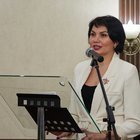‘The economic crisis caused by the pandemic can be an obstacle to Energy Strategy’
A development vector of power engineering through 2035 has been chosen in Russia
The government of the Russian Federation approved the project of the Energy Strategy through 2035. The strategy will be implemented in two stages: the first stage is until 2024, the second — from 2025 to 2035.
The experts surveyed by Realnoe Vremya claimed that the Strategy covers most problems of the energy sector. However, it has gaps: investment growth pace is provided without analysis of the situation in the market.
-
-

Denis Krasnovsky Chief analyst of ACRA corporate rating group
-
I think the document is quite voluminous and covers most problems of the sector and creates room for its development. Unfortunately, it doesn’t have ways of solving major problems such as cross subsidisation, higher effectiveness of thermal plants, the overload of the wholesale market of electrical energy with artificial increments, a solution to problems with the payback of heat generation. For instance, the Strategy envisages growth of installed capacity of the energy system of Russia by 2035 when the power of the system is already excessive.
The key indicators of electrical energy in the Strategy are: a reduction in the System Average Interruption Duration Index (SAIDI) and System Average Interruption Frequency Index (SAIFI) as well as a reduction in losses in networks; the construction of modern nuclear power plants; the start of hydrogen exports; a reduction in economically feasible costs on electrical energy production; higher effectiveness of heat generation. I think the goals set in the Strategy aren’t ambitious and can be achieved by the deadline.
The growing economic crisis caused by the pandemic can be an obstacle to implement the Strategy. There is a fall in electrical energy consumption, moreover, risks of the population’s failed payments increase, which is conditioned by the fall in general incomes. This totality can bring to a reduction in the amount of money that it takes to fund the measures envisaged by the Strategy.
In such a situation, the energy sector might need the government’s support. For instance, a moratorium on making regulatory decisions worsening conditions of running a business will help. Companies will need concessionary loans to cover cash gaps, a postponement of the launch of capacities without fines if this happened because of coronavirus restrictions. It is also necessary to consider the influence of the coronavirus on energy companies’ tariffs of costs, while with time it is necessary to cancel the moratorium on fines for unpaid utility bills.
-
-
-

Eduard Galeyev Director General of TGC-16 JSC
-
The new doctrine of energy security of the Russian Federation considers global economic and political changes, the transformation of world and Russian power engineering. The document considered almost all parameters of development of sectors of the Fuel and Energy Complex.
The energy strategy focuses on effectiveness, reliability, availability and quality of energy resources. And this fully complies with goals and missions of our company. The most important thing for us to provide required reliability and the highest effectiveness of energy supply to consumers. Considering that heat loads constantly grow, we pay special attention to the state of equipment in power plants and constantly develop the production infrastructure. Last year, TGC-16 allocated over two billion rubles to reequip, reconstruct and modernise as well as maintain and repair the main equipment, buildings and facilities.
Smart electrical energy metering systems, smart networks, digital technologies play an important role in the document. TGC-16 actively supports digital initiatives and technological projects to transform manufacturing processes. So our plant — Kazan CHPP-3 — became one of the first pilot sites in Tatarstan to introduce the concept Industry 4.0. General Electric installed Predix system within the modernisation. Now two units are operating — Asset Performance Management and Performance Optimisation. The solutions help to forecast emergencies and different failures, monitor key indicators of the equipment’s performance, compare arising problems with the experience of performance, calculate the economic effect.
In general I want to note that the Fuel and Energy Complex is a very high-tech and effective sector. It is the foundation of the economy of our country, the foundation of the infrastructure of the centre and regions. Therefore we can’t underestimate the importance and meaning of the Energy Strategy 2035. This document creates an outlook for the next 15 years. In the new reality, the next crisis, it is especially important for our sector to find a vector, priorities of further development.
-
-
-

Irina Akhmetova Doctor of Technical Sciences, Vice Rector in Research at Kazan State Power Engineering University
-
Russia’s energy strategy is updated no less than once in five years. However, when such events as the pandemic happen, this important document changes. For instance, unlike the Energy Strategy 2030, in the new version, one can see additional sections such as challenges for Russian power engineering or key risks in implementing the strategy. Among the tasks of the Energy Strategy 2035, there is modernisation and development of energy. Today energy companies are cutting costs and correcting investment programmes. This will delay the modernisation, moreover, the development of whole energy in general.
One of the important tasks of the Energy Strategy 2035 is to introduce principles of sustainable development, including the development of alternative energy sources. Though it isn’t the best time for green energy. Prices for energy resources have played a role. I believe in green energy, but it won’t be so topical in the next years. As for the Republic of Tatarstan, Kazan State Power Engineering University does research on alternative energy sources. Despite the current situation, we will continue the research in this sphere.
Slower growth paces of the Russian economy will reduce the expected quantity of domestic demand for energy resources and make requirements for higher effectiveness of the energy sector stricter, reduce operational and especially investment costs. Restriction of the growth of domestic prices for key types of energy products is the most important priority of the Energy Strategy 2035. Moreover, not at the expense of lack of funding of the Fuel and Energy Complex but at the expense of domestic reserves for higher effectiveness.
-
-
-

Valery Dzyubenko Vice Director of Society of Energy Consumers
-
In electrical energy, the strategy is declarative. The document claims “correct” goals and tasks, but in practice, we see that the Ministry of Energy does exactly the opposite. And in reality, the goals indicated in the Strategy are unachievable. As for tasks and measures, the document turned out to be incoherent and contradictory at times. It is especially noteworthy that strictly inert development of the sector is supposed in the next years, which doesn’t mean the development according to the high scenario providing the fulfilment of the president’s May decrees.
As for the unachievable goals of the Strategy, we should single out brake specific fuel consumption, which is one of the criteria of energy effectiveness of heat generation. According to the Strategy, brake specific fuel consumption in Russia must reduce from 309,8 g/KWh to 285,4 g/KWh in 2024 and to 255,6 g/KWh in 2035. To achieve these indicators until 2035, it is necessary to launch at least 21 GW highly effective generating capacities in the gas and steam cycle. By 2030, the number of such plants must achieve 45 GW. The current plants and programmes don’t envisage it.
We paid attention to the fact that the growth pace of investments in the working capital of the Fuel and Energy Complex is provided freely, without a division inside the sector, analysis of the situation and explanation. Now the level of investments in electrical energy is 24-26% of sectoral revenue. Its growth by 35-40% by 2024 means a higher share of investments to 35-37% in the revenue. Moreover, investment has already become the reason for creating excessive capacities in the electrical and generating complex. As a consequence, prices and tariffs on electrical energy rose. Society of Energy Consumers thinks that the project Energy Strategy needs to be re-elaborated to synchronise the goals and measures.
-